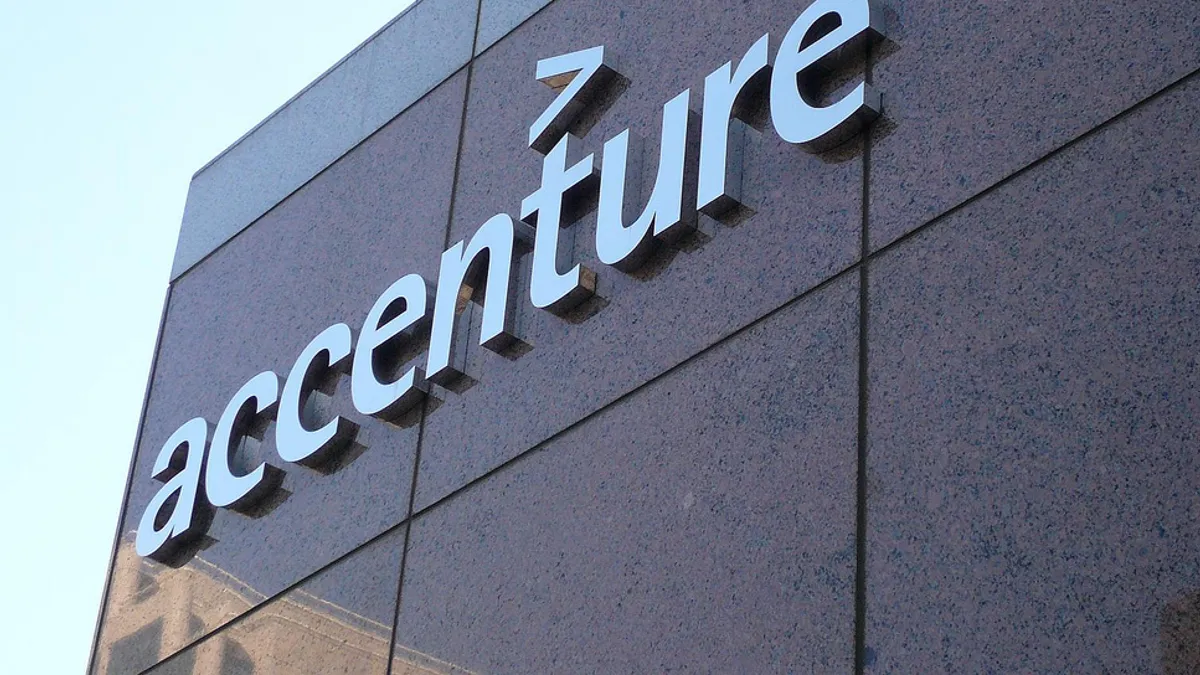Dive Brief:
- Accenture is putting its stores of data to use with the launch of SynOps, an "engine" that orchestrates data in combination with experts and machine intelligence for business outcomes.
- The offering, announced last week, is part of a push to use a combination of AI, analytics and diverse data to try to get clients to more intelligent operations, Debbie Polishook, group chief executive of Accenture Operations, told CIO Dive in an interview. Clients are trying to figure out how to renew their core business and market changes are "profound."
- Accenture works with clients to apply new capabilities and tech along a spectrum over time. Modernization requires a foundation and Accenture gradually introduces tools, such as adding in productivity offerings, which track what a person does behind the scenes, and includes basic opportunities to automate tasks for quick wins, Polishook said. Later, Accenture weaves in more advanced tools like robotic process automation, to drive "value beyond productivity."
Dive Insight:
Managed service providers are in a unique technology position. With scores of customers, they repeat modernization efforts and hone the introduction of new tools. What can emerge is an in-house offering built on industry insights: Enter offerings like SynOps.
Like many other managed service providers, Accenture is trying to glean value from its enormous troves of data, according to Stanton Jones, director and principal analyst at ISG.
The goal for the company is to offer its customer "business process reinvention," drawing from a company's internal data and its proprietary caches.
The appetite for automation is increasing, but customers are taking a measured approach about how to implement, relying on providers to help with the difficult task of implementation. But companies understand the way they work needs to change to keep pace with competition.
There is opportunity to automate mature processes that use structured data, said Jones, in an interview with CIO Dive. But the "holy grail" is for companies to tackle unstructured data.
Broadly, SynOps falls into the category of IT operations platform, which improves over time using analytics and machine learning, according to Jones.
It's part of the shift managed service providers are going through, said Jones. Companies are transitioning from using "people and labor arbitrage" to relying on software and AI techniques like machine learning to save money and increase speed.
The desire to act on business intelligence and inject automation to hone processes has given rise to new markets, including RPA.
The "war chest" around RPA is swelling, according to Jones, with companies raising millions of dollars in venture capital. This week Catalytic raised $30 million in Series B funding, a deal that pales in comparison to larger RPA investments.
Since September, leading RPA vendors UiPath, Automation Anywhere and Blue Prism have raised more than $650 million. And vendors like Oracle are working to break into the space.














